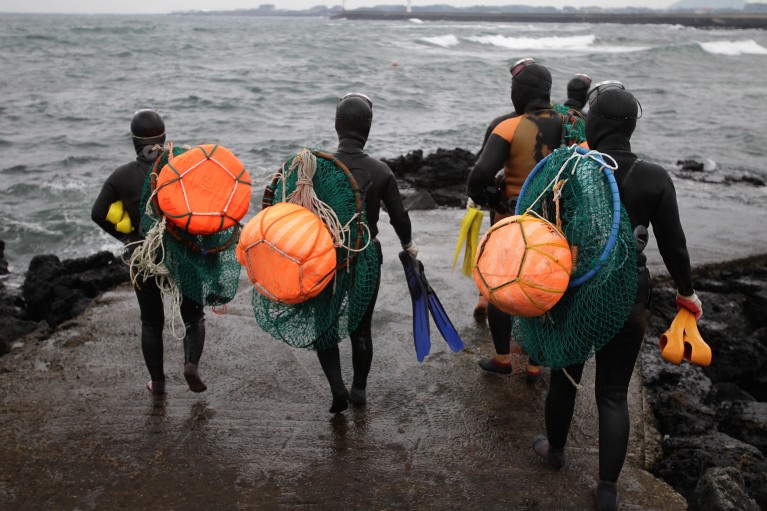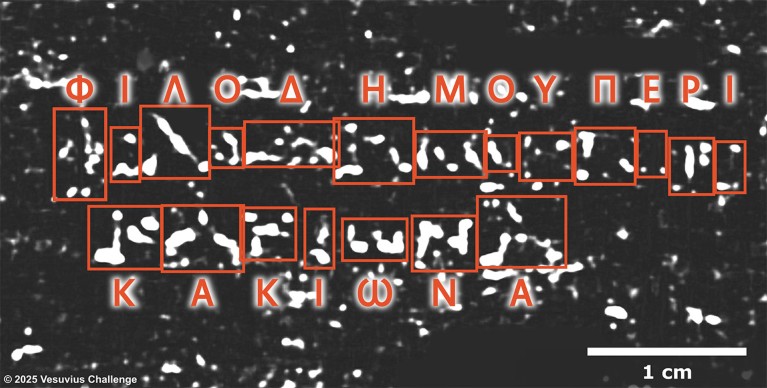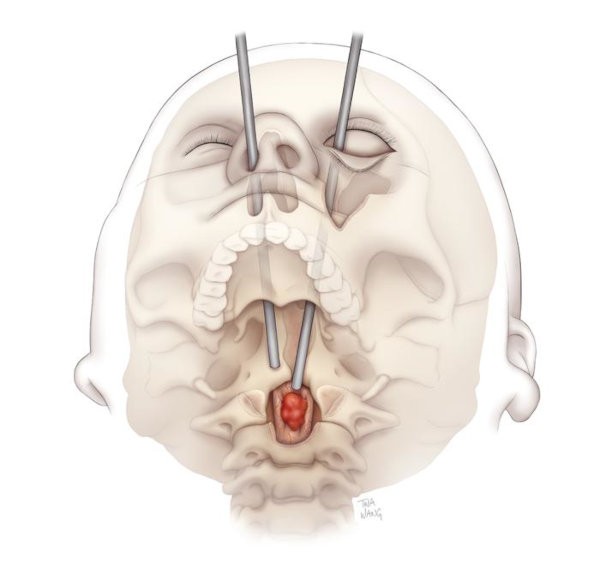Hello Nature readers, would you like to get this Briefing in your inbox free every day? Sign up here.

South Korea’s all-female Haenyeo divers gather seafood, a tradition that goes back centuries. Credit: Chung Sung-Jun/Getty
No diver is an island
A tradition of diving on the South Korean island of Jeju might have influenced the genomes of all of the islanders. The Haenyeo — meaning ‘women of the sea’ — have been cold-water diving year-round and without any breathing apparatus for centuries. A genetic analysis revealed that gene variants associated with reduced blood pressure, cold water tolerance and red blood cell count — which is related to oxygen-carrying capacity — are more common in people from Jeju, regardless of whether they dive themselves, than in other South Koreans.
Reference: Cell Reports paper
UK to fund small geoengineering trials
The United Kingdom’s high-risk research funder, the Advanced Research and Invention Agency (ARIA), has announced the geoengineering research that it will fund to study how Earth’s climate could be cooled. The projects include small-scale trials to thicken ice sheets with water pumped from underneath and theoretical work on whether a sunshade deployed in space could cool portions of Earth’s surface. But the programme has its critics: climate scientist Michael Mann and physicist Raymond Pierrehumbert argue that it is “a dangerous distraction”.
Nature | 7 min read & The Guardian opinion | 5 min read
Social networks draw in teens with anxiety
Teenagers with mental-health conditions such as anxiety and depression spend more time on social media than their peers and are less happy with aspects of the experience, such as their number of online friends. The results of a survey of adolescents in the United Kingdom are “a good warning to families that if your youth is vulnerable because of anxiety, a tendency to have depression or be low in mood, then social media is something that really needs to be carefully monitored”, says Anne Marie Albano, a clinical child and adolescent psychologist.
Reference: Nature Human Behaviour paper
Image of the week

The Greek letters identify the scroll as part of On Vices by the Greek philosopher Philodemus.Credit: Vesuvius Challenge
Two researchers in the field of machine learning have won US$60,000 for being the first to reveal the title and author of a sealed papyrus scroll carbonized by the eruption of Mount Vesuvius in Italy in ad 79. The crucial lines identify the work as part of On Vices by the Greek philosopher Philodemus. (Nature | 4 min read) (Vesuvius Challenge)
Features & opinion
Putting the Indigenous into AI
AI researcher Michael Running Wolf’s work stretches from the Kwakiutl Nation on the northwest Pacific Coast of North America to the home of the Māori in the southwestern Pacific Ocean. As the big AI developers seek out Indigenous-language training data to add valuable complexity to their systems’ corpuses, Running Wolf is creating resources by and for Indigenous communities. Alongside his wife and collaborator Caroline, who speaks 11 languages, he works to restore some of the linguistic tapestry torn by colonial practices and give Indigenous people more control over how their data are used.
Spinal tumour removed through the eye
Nineteen-year-old Karla Flores has become the first person in the world to have a spinal tumour removed through her eye socket. Lead neurosurgeon Mohamed Labib chose the unusual entry point because it was the best way to access a tumour that was pressing on Flores’s spinal cord near the base of her skull. Even a few millimetres of imprecision could have resulted in a fatal stroke, paralysis below the neck or damage to the eye. Fortunately, the surgery and subsequent radiotherapy was a success, and Flores’s prognosis is “excellent”, says Labib.
The Washington Post | 14 min read

To perform the delicate proceedure, surgeons lowered a drill through the left eye socket and an endoscope through the right nostril. (Tina Wang/University of Maryland Department of Neurosurgery)
